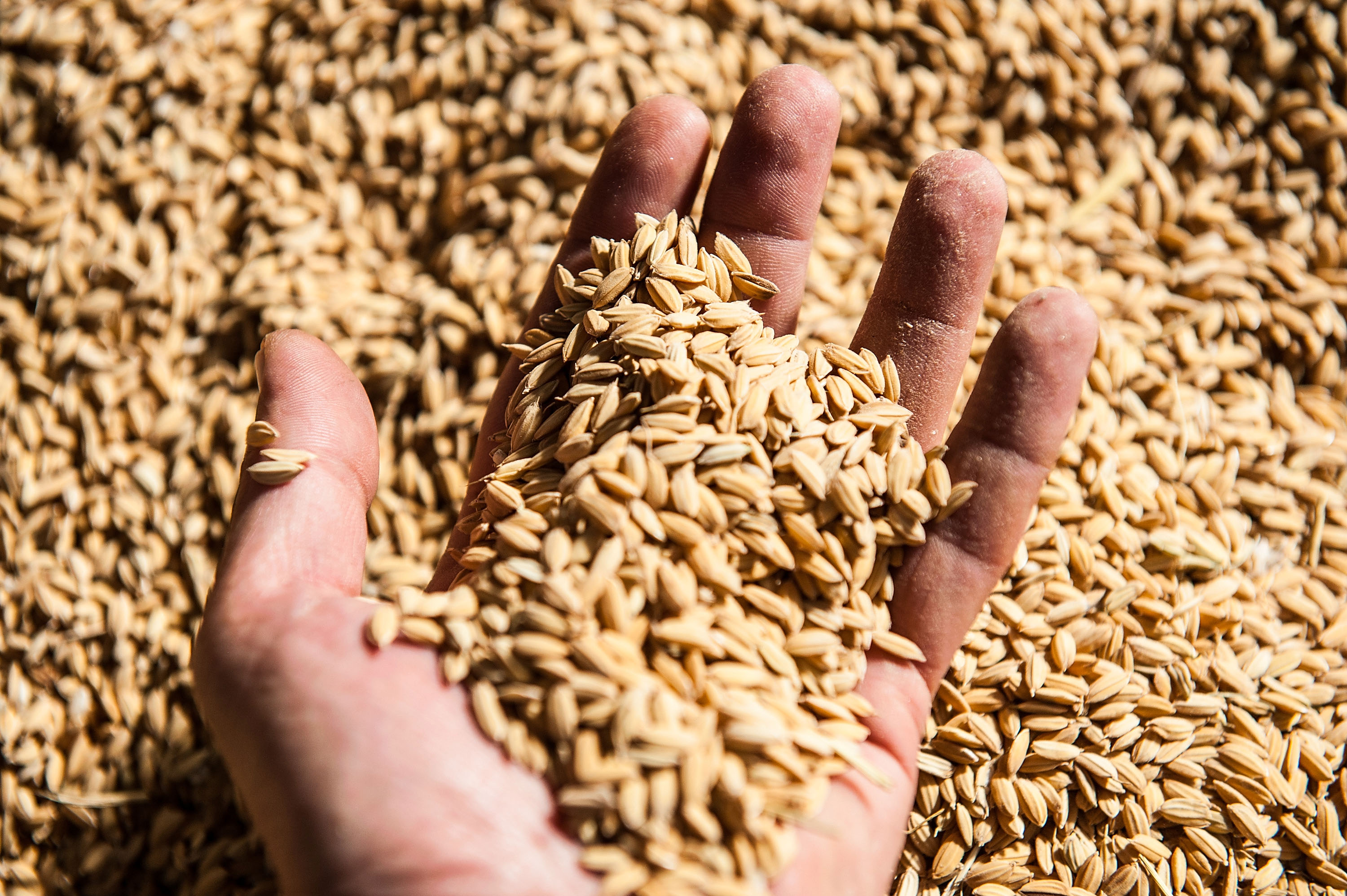Dangerous levels of arsenic found in baby rice products
Tests on infant foods in UK supermarkets discovered almost a quarter broke EU safety rules

A free daily email with the biggest news stories of the day – and the best features from TheWeek.com
You are now subscribed
Your newsletter sign-up was successful
Seven types of baby rice foods sold in UK supermarkets contain dangerous levels of arsenic, new research shows.
Tests on 26 products for Channel 4’s Food Unwrapped programme revealed that almost a quarter broke European Union rules. A maximum level of arsenic allowed in rice used for baby food was introduced in January 2016 to reduce children’s exposure to the harmful toxin.
Food research expert Professor Andy Meharg told the TV series that parents should restrict baby rice feeds to 30g a day - about three tablespoons.
The Week
Escape your echo chamber. Get the facts behind the news, plus analysis from multiple perspectives.

Sign up for The Week's Free Newsletters
From our morning news briefing to a weekly Good News Newsletter, get the best of The Week delivered directly to your inbox.
From our morning news briefing to a weekly Good News Newsletter, get the best of The Week delivered directly to your inbox.
But he told The Mail on Sunday that he personally “would not feed young children rice at all”. Meharg explained: “As a parent, I would want to take problematic things out. I would not want to take a risk with it.”
Because rice absorbs so much water when it grows, “it tends to absorb more arsenic than other grains, such as wheat, oats and rye”, says Professor Stuart Shalat, of Georgia State University’s School of Public Health, in an article on The Conversation.
“Brown rice tends to contain higher levels of arsenic than white rice, because the arsenic accumulates more in the outer coating, which is removed in white rice,” he adds.
When it comes to the potential health risks posed to children, “most of our knowledge comes from studies of populations with high levels of arsenic in their drinking water”, continues Shalat. For example, studies of children in arsenic-exposed areas of Bangladesh found reductions in their measured IQ.
A free daily email with the biggest news stories of the day – and the best features from TheWeek.com
Long-term exposure to arsenic is associated with a range of health effects, including skin, bladder, kidney and lung cancer, as well as diabetes, heart disease and damage to blood vessels and the nervous system.
Several mothers and fathers interviewed on Food Unwrapped were shocked by the levels of arsenic found in the UK tests, with one describing them as “scary”. Another said: “There should be more warnings.”
The parents urged authorities to provide clearer labelling on all baby rice products, which are claimed to help wean babies off breast milk and on to solid foods.
A Food Standards Agency spokesperson said: “Arsenic is naturally occurring in the environment and it is not possible to totally eliminate it from the diet. But because it has the potential to increase the risk of illnesses, including cancer, it is important to reduce exposure to as low as reasonably achievable.
“Maximum legal levels are in place for arsenic in rice, with stricter levels for rice used in the production of foods for infants and young children. It is the responsibility of food manufacturers to ensure they use ingredients in compliance with the legislation. Where non-compliance is found, enforcement officers will investigate and take action as needed.”
-
 Switzerland could vote to cap its population
Switzerland could vote to cap its populationUnder the Radar Swiss People’s Party proposes referendum on radical anti-immigration measure to limit residents to 10 million
-
 Political cartoons for February 15
Political cartoons for February 15Cartoons Sunday's political cartoons include political ventriloquism, Europe in the middle, and more
-
 The broken water companies failing England and Wales
The broken water companies failing England and WalesExplainer With rising bills, deteriorating river health and a lack of investment, regulators face an uphill battle to stabilise the industry
-
 Home Office worker accused of spiking mistress’s drink with abortion drug
Home Office worker accused of spiking mistress’s drink with abortion drugSpeed Read Darren Burke had failed to convince his girlfriend to terminate pregnancy
-
 In hock to Moscow: exploring Germany’s woeful energy policy
In hock to Moscow: exploring Germany’s woeful energy policySpeed Read Don’t expect Berlin to wean itself off Russian gas any time soon
-
 Were Covid restrictions dropped too soon?
Were Covid restrictions dropped too soon?Speed Read ‘Living with Covid’ is already proving problematic – just look at the travel chaos this week
-
 Inclusive Britain: a new strategy for tackling racism in the UK
Inclusive Britain: a new strategy for tackling racism in the UKSpeed Read Government has revealed action plan setting out 74 steps that ministers will take
-
 Sandy Hook families vs. Remington: a small victory over the gunmakers
Sandy Hook families vs. Remington: a small victory over the gunmakersSpeed Read Last week the families settled a lawsuit for $73m against the manufacturer
-
 Farmers vs. walkers: the battle over ‘Britain’s green and pleasant land’
Farmers vs. walkers: the battle over ‘Britain’s green and pleasant land’Speed Read Updated Countryside Code tells farmers: ‘be nice, say hello, share the space’
-
 Motherhood: why are we putting it off?
Motherhood: why are we putting it off?Speed Read Stats show around 50% of women in England and Wales now don’t have children by 30
-
 Anti-Semitism in America: a case of double standards?
Anti-Semitism in America: a case of double standards?Speed Read Officials were strikingly reluctant to link Texas synagogue attack to anti-Semitism